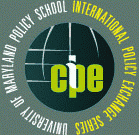Cash Transfers and Guaranteed Minimum Income Programs:
Research, Evaluation, and Policy
Prague, Czech Republic
September 9-10, 2024

-
“Adequacy of Guaranteed Minimum Benefit scheme as a poverty alleviation toll in Croatia”
Zdenko Babić, Zagreb University - Social Work Study Center
A central open issue in addressing poverty is the low adequacy of Croatia’s minimum income scheme called guaranteed minimum benefit (GMB). Croatia’s (GMB) scheme has low adequacy rate and relatively low coverage of the poor. Low coverage and low benefits lead to limited poverty alleviation effects. The value of GMB depends on an arbitrary decision made by the Government. There are no reference budgets to set benefits levels, and no indexation is implemented. GMB base is set very low; in 2020, the GMB base for a single adult person was EUR 106 per month, and the relative poverty threshold for single-person households was EUR 385 per month, in 2023 the GMB base has increased to 150 EUR while relative poverty threshold for single-person households has also increased to 500 EUR monthly. Moreover, strict means test lead to the exclusion of some of the actually poor from the GMB scheme. The inadequacy of MI schemes has been mentioned in several EU policy papers and CSRs and was often linked with the recommendations to consolidate social benefits, eliminate overlaps and improve the adequacy of minimum income and unemployment benefits. However, the adequacy level, coverage rate and system of activation for unemployed GMB beneficiaries still need to be satisfactorily addressed in Croatia. Therefore, the main goal of this work is to achieve a deeper insight into the potentials and challenges of the minimum income system in their focus on poverty alleviation and better social integration of their users in Croatia. Thus a comparative analysis of the minimum income system in Croatia and Slovenia as a good practice example of minimum income scheme will be done. For the comparative analysis of the minimum income system, key indicators will be analyzed, such as the adequacy rate of the minimum income, the coverage rate of the poor by the minimum income and working activation measures for the workable unemployed minimum income beneficiaries for the period from 2018 to 2021. Elements of the availability of the minimum income system will be analyzed, such as the complexity of the application process and the complexity of the method of checking income and assets, the so-called means test. At the end, certain recommendations for improving the minimum income system in the Republic of Croatia will be presented.

